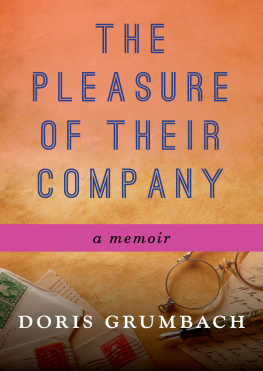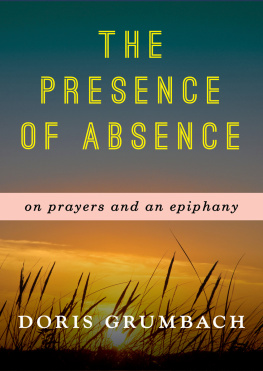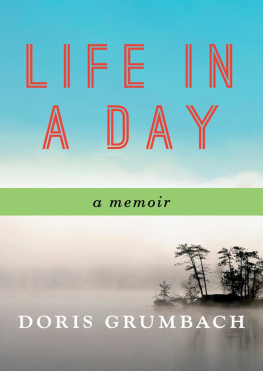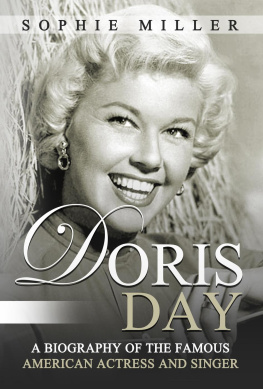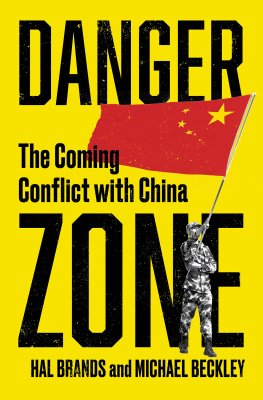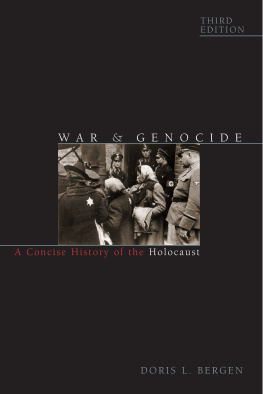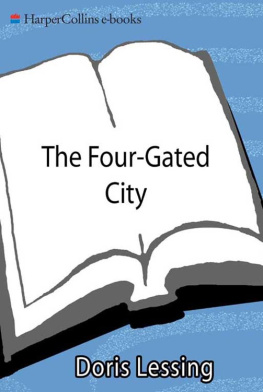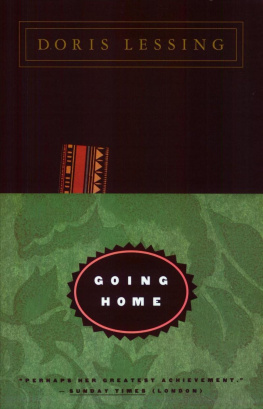EARLY BIRD BOOKS
FRESH EBOOK DEALS, DELIVERED DAILY
LOVE TO READ ?
LOVE GREAT SALES ?
GET FANTASTIC DEALS ON BESTSELLING EBOOKS
DELIVERED TO YOUR INBOX EVERY DAY!

Coming Into the End Zone
A Memoir
Doris Grumbach
THIS MEMOIR IS FOR
ISAAC WHEELER
AND
MAYA YAROWSKY
MY PERSONAL REPRESENTATIVES
IN THE FUTURE
Now this is not the end. It is
not even the beginning of the end.
But it is, perhaps, the end of the
beginning.
WINSTON CHURCHILL
It is eccentric and inaccurate to claim that the July of my seventieth birthday is a landmark in my life. Surely there were other important Julys scattered throughout those many years. For instance, that month of my fifth year when I realized I had to go to school in September. It was a prospect I dreaded, believing in my heart that I was already sufficiently educated by Central Park, by the books I had read since I was three and a half, and by the disruptive arrival that year of a baby sister who taught me terrible lessons in displacement, resentment, hatred.
In the July of my twentieth year after I had graduated from college I ignored the event because I was in a state of shock. During the May that preceded it, my friend and classmate John Ricksecker had jumped from the roof of the School of Commerce at New York University, ending his troubled life and my innocence about how good life was and how hopeful our future. It was May 1939, a few months before Hitler marched into Poland. Was he determined not to be made to go to war? I never knew why he chose to jump, or whether he did. For he said as he was dying that he climbed up and fell. I have always mourned him and felt responsible for his death. As a woman not liable to be called up, I was overwhelmed by the unfairness of the draft, making me realize the destructive power of sexual inequities and the injustice of death.
There was the July two years later after I married in May. I began to see that legal unions did not solve problems of inner turmoil and loneliness. The Julys in my middle years after two of my children were born and I began to have serious doubts about my capacity for motherhood. The July I lay in bed in a tiny room in a country house, afflicted with viral pneumonia, listening to the sounds of husband and children downstairs, and wondering how to escape from everything and everyone I knew.
My sixtieth July was terrible. I remembered, as though I had been struck a blow, that my mother had died at fifty-nine. Somehow, to have exceeded her life span by a year seemed to me a terrible betrayal. It was worse than the guilt that choked me later at the thought of having lived eighteen years longer than the little sister I had once hoped would disappear from her crib during the night, stolen by an evil fairy, or dead at the hand of a careless Frulein.
At sixty-five I must have been resigned to aging and death: I can remember no raging against the night, no anger about what Yeats described as decrepit age that has been tied to me/As to a dogs tail.
But seventy. This is different. The month at seventy seems disastrous, so without redeeming moments that, in despair, I am taking notes, hoping to find in the recording process a positive value to living so long, some glory to survival, even vainglory if true glory is impossible.
These are my notes, edited here and there to insert the right word when I could find it, to correct the syntax or grammar, and to reduce the excessive rhetoric, the bloated use of the first-person pronoun, that always accompanies ones private record.
July
In the New York Times I read a memorial notice placed there by the publishers of Robert Ferro, a novelist and my friend who has died of AIDS. Our age has become a time of plague. In October my editor and friend William Whitehead died of AIDS. In June I wrote some paragraphs to be read at the memorial service of an acquaintance, Michael Grumley, a writer and the lover of Bob Ferro, afflicted by the same inexorable disease. On that occasion, I quoted from Thomas Manns The Magic Mountain: The only religious way to think of death is as part and parcel of life. Now I find that lofty sentiment unacceptable. It may be the religious way, but like so much in religion, it is fanciful and delusive. Death denies life, erases it violently, leaving only the barest memory of the dead, and that often unrelated to the living truth.
In my too-easy, prose-slinging way, I went on to quote an old American Indian saying: There is no death. Only a change of worlds. That strikes me now as presumptuous and dubious if one is in doubt about the existence of the next world, as I am today. I believe now in the void, into which Bill Whitehead and Michael Grumley and Robert Ferro descended. Yes, and John Ricksecker fifty years ago. I stand on its edge, suffering the usual guilt of the survivor. My advanced age is a mortal insult to their premature deaths.
William Wordsworth:
The good die first,
And they whose hearts are dry as summer dust
Burn to the socket.
Today my heart is dry, and it burns for the good Bill and Michael and Robert who have died first. And John, whom I remember more clearly than any other member of the class of 1939. Perhaps I was wrong to think that only the barest memory survives death.
I note how much less I now read, how much slower, how much better. My old boastand it was foolishly truewas that I read a book a day, since the age of about six. That is more than twenty-five thousand books in my lifetime, a doubtful accomplishment, since many of them I have entirely forgotten and others I remember imperfectly. Did they leave some imperceptible trace on the edges of my cerebrum, to form the detritus that provides me with what I call, arrogantly, ideas? Or did they simply fill up the time I was afraid to spend alone, as though I might sink into nothingness, the adolescent void, if I were without a book?
It is hard work to read more slowly. Interest propels me, curiosity spurs me on, and the idiot desire to finish and get on to the next book. But when I slow down, I interlard the writers words with my own. I think about what they are saying, I consider their methods, I hesitate before their choices, I dillydally in their views instead of racing through their styles and subject matter. Reading in the new way now, I learn. Before, I seemed to be instructing the book with my superior opinions.
I write more slowly, having learned from my laggard reading to relish pauses and interstices. An adaptation of Schumachers aphorism: Slow is better. Fewer is beautiful.
Todays mail brings requests from two young writers, both students in workshops of some years ago. Will I write blurbs for their forthcoming novels? My first impulse is to say: No, you Young Turk. Why should you be publishing a first novel at twenty-five or -seven or -nine or whatever presumptuous and cavalier age you are? I feel an ignoble rush of envy, having started so late myself: fifty-three, when one rightly expects an ebbing of the tide, a diminution of creative energies.






